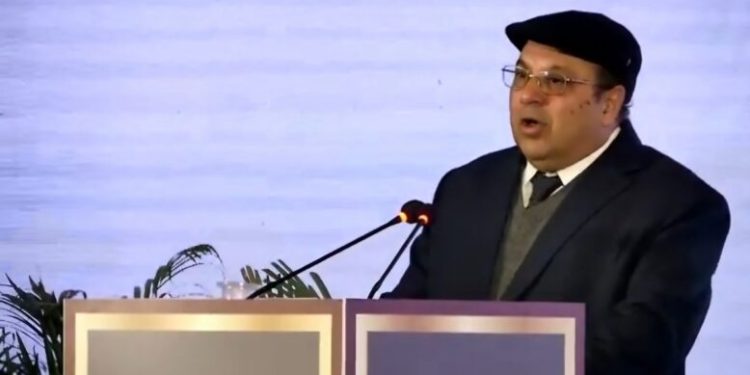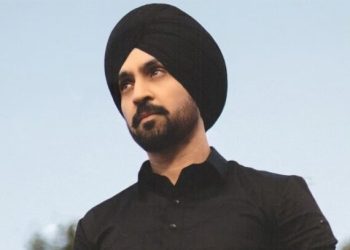By Muslim Mirror Staff
In a critical address at the First Justice AM Ahmadi Memorial Lecture on “Secularism and the Indian Constitution,” retired Supreme Court Justice RF Nariman expressed profound concerns about the Supreme Court’s handling of secularism in judgments related to the Babri Masjid dispute. He particularly critiqued the 2019 verdict that granted the disputed site to Hindus for constructing a temple, calling it a “travesty of justice” that undermined the secular principles enshrined in the Indian Constitution.
Justice Nariman reflected on the historical trajectory of the Babri Masjid, emphasizing how the Supreme Court’s decisions over the years failed to uphold secularism. He noted that secularism, a cornerstone of the Constitution, was sidelined in favor of political and religious majoritarianism.
The Aftermath of Babri Masjid’s Demolition
Justice Nariman revisited the government’s response to the demolition of the Babri Masjid on December 6, 1992. The establishment of the Liberhan Commission, which took 17 years to submit its findings in 2009, was criticized as inadequate. He also highlighted the passage of the Ayodhya Acquisition of Areas Act and the Presidential reference to determine whether a Hindu temple existed beneath the mosque—a move he described as “mischievous.”
The retired judge delved into the landmark Ismail Faruqui v. Union of India case in 1994, where the Supreme Court upheld the Ayodhya Act but controversially ruled on maintaining the status quo. This ruling allowed Hindu worshippers to pray inside the disputed structure while failing to address the secular implications of the law. Justice Ahmadi, in his dissent, argued that the Act was inconsistent with secularism.
Critique of the 2019 Ram Janmabhoomi Verdict
Justice Nariman strongly criticized the 2019 Supreme Court verdict that awarded the disputed land in Ayodhya to Hindus for constructing a temple, despite acknowledging that the demolition of the Babri Masjid in 1992 was illegal. He pointed out the contradictions in the Court’s reasoning, particularly its assertion that Muslims were not in exclusive possession of the site, even though historical evidence confirmed they had been praying there until 1949.
Nariman elaborated on the historical developments:
The Babri Masjid, built in 1528, remained a mosque until conflicts arose in 1853.
The British administration built a wall dividing the inner and outer courtyards in 1857.
Muslims continued praying in the inner courtyard, while Hindus worshipped in the outer courtyard.
In 1949, idols were illegally placed inside the mosque, leading to the cessation of Muslim prayers.
He also questioned the reliance on the 2003 Archaeological Survey of India (ASI) report, which found artifacts belonging to various religious groups but no evidence of a Ram temple beneath the mosque. Despite these findings, the Court concluded that the site belonged to Hindus.
“This was a great travesty of justice,” Nariman remarked. “Every single time, it was the Hindu side that acted contrary to the rule of law. Yet, reparations were limited to providing
There Was Not a Hindu Temple Underneath the Mosque: Justice RF Nariman
In a critical address at the First Justice AM Ahmadi Memorial Lecture on “Secularism and the Indian Constitution,” retired Supreme Court Justice RF Nariman expressed profound concerns about the Supreme Court’s handling of secularism in judgments related to the Babri Masjid dispute. He particularly critiqued the 2019 verdict that granted the disputed site to Hindus for constructing a temple, calling it a “travesty of justice” that undermined the secular principles enshrined in the Indian Constitution.
Justice Nariman reflected on the historical trajectory of the Babri Masjid, emphasizing how the Supreme Court’s decisions over the years failed to uphold secularism. He noted that secularism, a cornerstone of the Constitution, was sidelined in favor of political and religious majoritarianism.
The Aftermath of Babri Masjid’s Demolition
Justice Nariman revisited the government’s response to the demolition of the Babri Masjid on December 6, 1992. The establishment of the Liberhan Commission, which took 17 years to submit its findings in 2009, was criticized as inadequate. He also highlighted the passage of the Ayodhya Acquisition of Areas Act and the Presidential reference to determine whether a Hindu temple existed beneath the mosque—a move he described as “mischievous.”
The retired judge delved into the landmark Ismail Faruqui v. Union of India case in 1994, where the Supreme Court upheld the Ayodhya Act but controversially ruled on maintaining the status quo. This ruling allowed Hindu worshippers to pray inside the disputed structure while failing to address the secular implications of the law. Justice Ahmadi, in his dissent, argued that the Act was inconsistent with secularism.
Critique of the 2019 Ram Janmabhoomi Verdict
Justice Nariman strongly criticized the 2019 Supreme Court verdict that awarded the disputed land in Ayodhya to Hindus for constructing a temple, despite acknowledging that the demolition of the Babri Masjid in 1992 was illegal. He pointed out the contradictions in the Court’s reasoning, particularly its assertion that Muslims were not in exclusive possession of the site, even though historical evidence confirmed they had been praying there until 1949.
Nariman elaborated on the historical developments:
The Babri Masjid, built in 1528, remained a mosque until conflicts arose in 1853.
The British administration built a wall dividing the inner and outer courtyards in 1857.
Muslims continued praying in the inner courtyard, while Hindus worshipped in the outer courtyard.
In 1949, idols were illegally placed inside the mosque, leading to the cessation of Muslim prayers.
He also questioned the reliance on the 2003 Archaeological Survey of India (ASI) report, which found artifacts belonging to various religious groups but no evidence of a Ram temple beneath the mosque. Despite these findings, the Court concluded that the site belonged to Hindus.
“This was a great travesty of justice,” Nariman remarked. “Every single time, it was the Hindu side that acted contrary to the rule of law. Yet, reparations were limited to providing alternate land for a mosque, rather than restoring the Babri Masjid.”
Secularism Undermined
Justice Nariman also criticized the criminal case relating to the demolition of the Babri Masjid, where all accused were acquitted. He pointed out that the judge who delivered the acquittal was later appointed as the Upa-Lok Ayukta of Uttar Pradesh, reflecting a broader erosion of justice.
A Silver Lining
Despite his criticism, Justice Nariman acknowledged a “silver lining” in the Ayodhya judgment: the Supreme Court’s reaffirmation of the Places of Worship (Special Provisions) Act, 1991. This law prohibits the conversion of places of worship and seeks to maintain the status quo as it existed on August 15, 1947.
Nariman emphasized the importance of this Act in countering the growing trend of suits challenging the status of religious structures across India. He expressed concern over the filing of cases claiming Hindu temples beneath Muslim religious sites, warning that such actions could lead to communal disharmony.
“The only way to scorch and cauterize all this,” Nariman argued, “is by applying the five critical pages of the Ayodhya judgment that uphold the Places of Worship Act. These pages should be read in every district court and High Court to remind all that the Supreme Court’s declaration is binding.”
The Way Forward
Justice Nariman concluded his lecture by quoting Justice Chinnappa Reddy in the Biju Emmanuel v. State of Kerala case: “Our philosophy preaches tolerance; our Constitution practices tolerance. Let us not dilute it.” His remarks underscored the need for the judiciary to protect secularism and resist pressures that threaten the Constitution’s foundational principles.
By highlighting these lapses, Justice Nariman urged a reexamination of judicial and governmental approaches to secularism in India. His critique serves as a reminder of the importance of upholding constitutional values in a pluralistic society.






